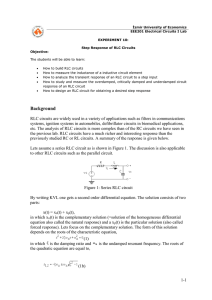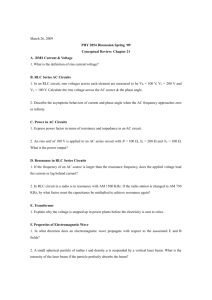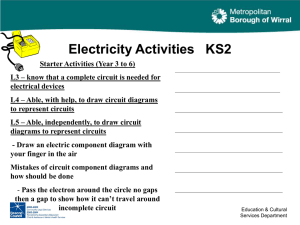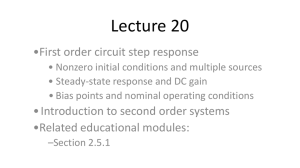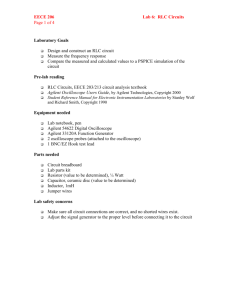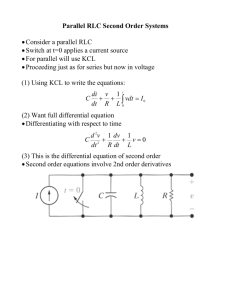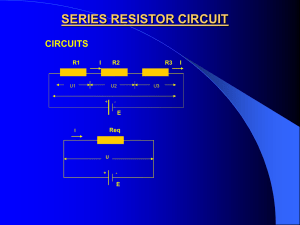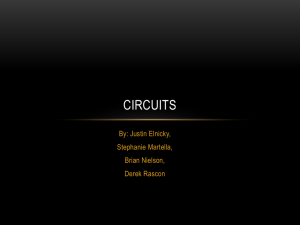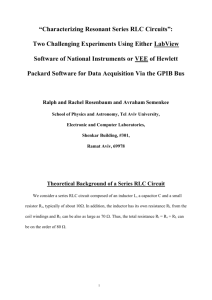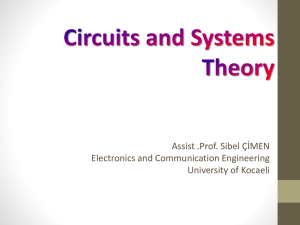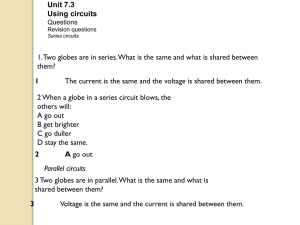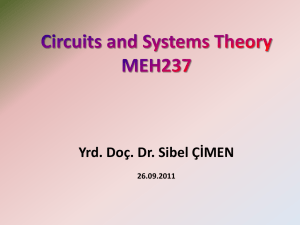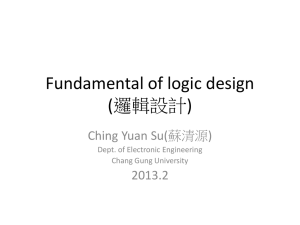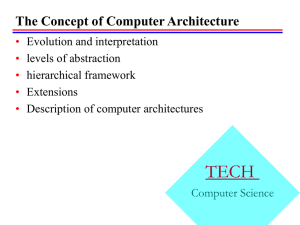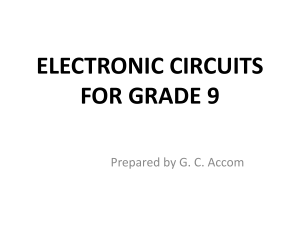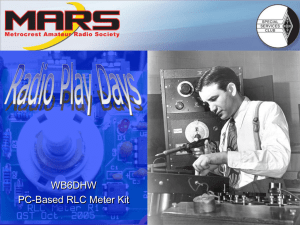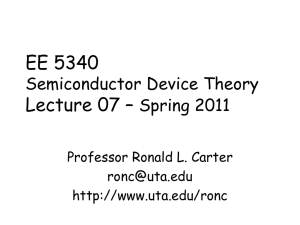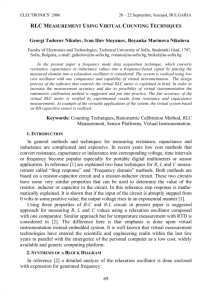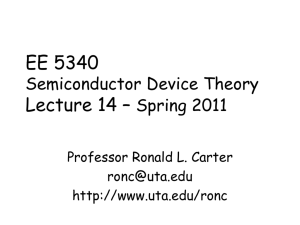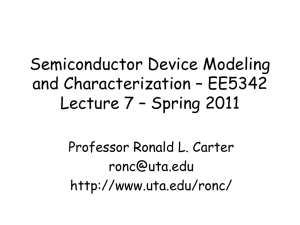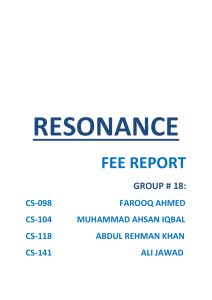RLC Circuit Review
advertisement
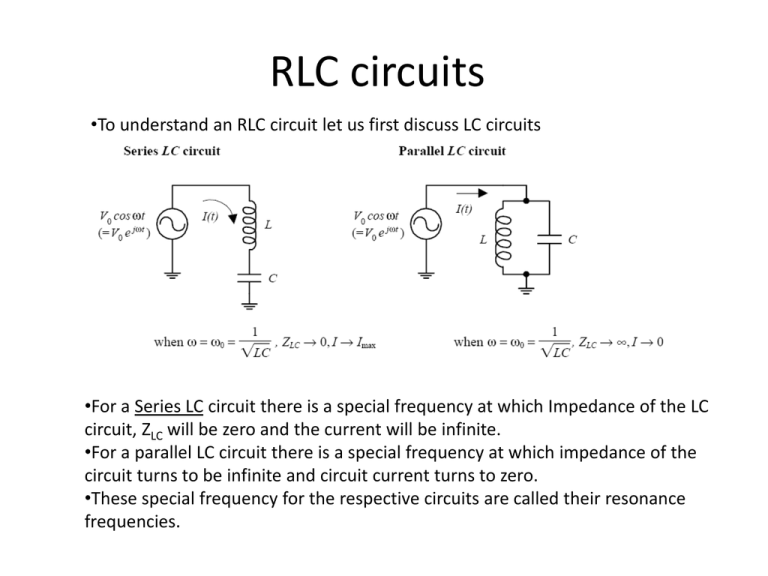
RLC circuits •To understand an RLC circuit let us first discuss LC circuits •For a Series LC circuit there is a special frequency at which Impedance of the LC circuit, ZLC will be zero and the current will be infinite. •For a parallel LC circuit there is a special frequency at which impedance of the circuit turns to be infinite and circuit current turns to zero. •These special frequency for the respective circuits are called their resonance frequencies. RLC circuits •Resonance frequency for both the circuits can be found from the followings: (Angular form) or (Non-angular form) •Why ? Let us consider the series LC circuit Let us put then in = So, Zeq becomes zero when =0 and hence RLC circuits Similarly for the Parallel LC circuit Zeq turns to infinity when (since the denominator becomes zero) and current •Why resonance frequency is important? Utilizing this phenomenon we can design frequency selective circuits (example: radio tuner to select a certain station) RLC circuits •An RLC circuit has an additional resistance than the LC circuit. This additional resistance makes some difference. •At resonance frequency, zero impedance (for series LC) or infinity impedance (for parallel LC) are shifted up or down in size due to this resistance . RLC circuits • Some Common Terms 1. Bandwidth: It is the width of the peak which is defined by the distance between the two half power points ω1 and ω2 2. Center frequency: Center frequency is the frequency ω0 at which the current in the circuit is the maximum. 3. Q factor: Quality factor or Q factor is a measurement to determine the sharpness of the curve shown in the above figure which is very important to know to design a band pass filter. Series RLC circuit •What is the resonance frequency? •What is the Quality factor (unloaded)? Q •Show that inductive and capacitive reactance at resonance are equal but opposite in phase. Parallel RLC circuit •What is the resonance frequency? •What is the Quality factor (unloaded)? Q RLC Series Transient Analysis Series RLC circuit Condition: • The current rises very rapidly to a value near V0/R (in a time ~L/R and then decays very slowly back to zero. Series RLC circuit Condition: • The curve is almost the same except there is no overshoot of the current. Series RLC circuit Condition: •The solution is oscillatory, the amplitude of the oscillation decays exponentially.
